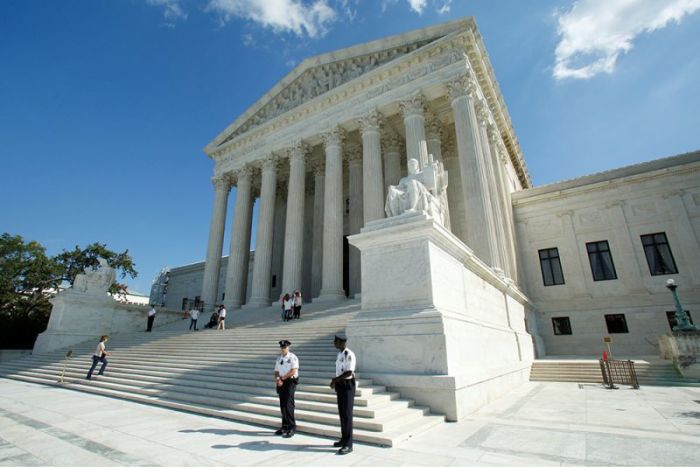Supreme Court rules that school can't punish cheerleader for profanity-laden social media post

A Pennsylvania school overstepped its constitutional bounds when it punished a cheerleader for a profanity-laden social media post, according to the U.S. Supreme Court.
In a decision released Wednesday, the high court ruled 8-1 that a former student named Brandi Levy was wrongfully kicked off her squad by a coach for posting a profanity-laced Snapchat message voicing her frustration with not making the varsity squad.
Justice Stephen Breyer authored the majority opinion, upholding a lower court ruling in favor of the student and concluding that “the school’s disciplinary action violated the First Amendment.”
While noting that there are times when schools can regulate student behavior that is off-campus, Breyer nevertheless concluded that “the school itself has an interest in protecting a student’s unpopular expression, especially when the expression takes place off campus.”
“Putting aside the vulgar language, the listener would hear criticism, of the team, the team’s coaches, and the school—in a word or two, criticism of the rules of a community of which B. L. forms a part,” wrote Breyer.
“This criticism did not involve features that would place it outside the First Amendment’s ordinary protection. B. L.’s posts, while crude, did not amount to fighting words.”
In a dissenting opinion, Justice Clarence Thomas argued that, historically, schools have been given broad powers to discipline students, even when they are off-campus.
“A school can regulate speech when it occurs off campus, so long as it has a proximate tendency to harm the school, its faculty or students, or its programs,” wrote Thomas.
“If there is a good constitutional reason to depart from this historical rule, the majority and the parties fail to identify it.”
Levy, identified in the case as “B.L.,” made the Mahanoy Area High School junior varsity cheerleading team as a rising freshman and wanted to make varsity in 2017 as a rising sophomore.
When she failed to do so, she vented her frustrations on Snapchat, going out to an audience of around 250 people, including classmates or fellow cheerleaders.
“[F***] school [f***] softball [f***] cheer [f***] everything,” read her Snapchat message, which was up for 24 hours and had a photo of her and a friend raising their middle fingers.
The message was brought to the attention of her school’s coaches by other students, eventually leading to Levy being kicked off the cheerleading team.
Levy and her parents sued the Mahanoy Area School District accusing school officials of violating their daughter’s First Amendment freedoms by restricting her off-campus speech.
Many groups, including the Foundation for Individual Rights in Education, viewed the case as a matter of great importance when it came to the free speech rights of students.
Will Creeley, legal director at FIRE, told The Christian Post in an earlier interview that the Supreme Court should “reject such a dangerous expansion of government power” and side with Levy and her parents.
“If you are a student with the dissenting viewpoint at your public school and you say or do something on the weekend that a public school administrator sees via social media and worries might cause a ‘disruption,’ however unreasonably, you risk punishment,” said Creeley.
“Even though this case is about a cheerleader’s profane Snapchat, the implications for student speech rights are far bigger and could reach a great deal of political, religious speech as well as just everyday students.”





























